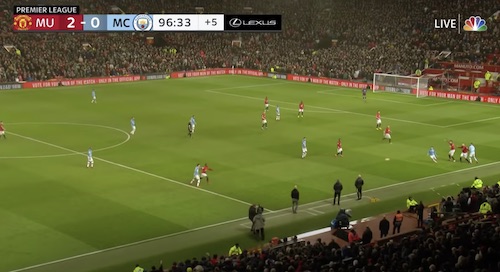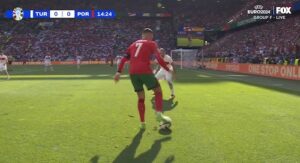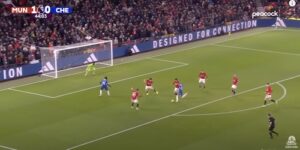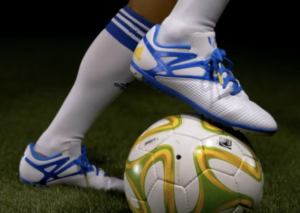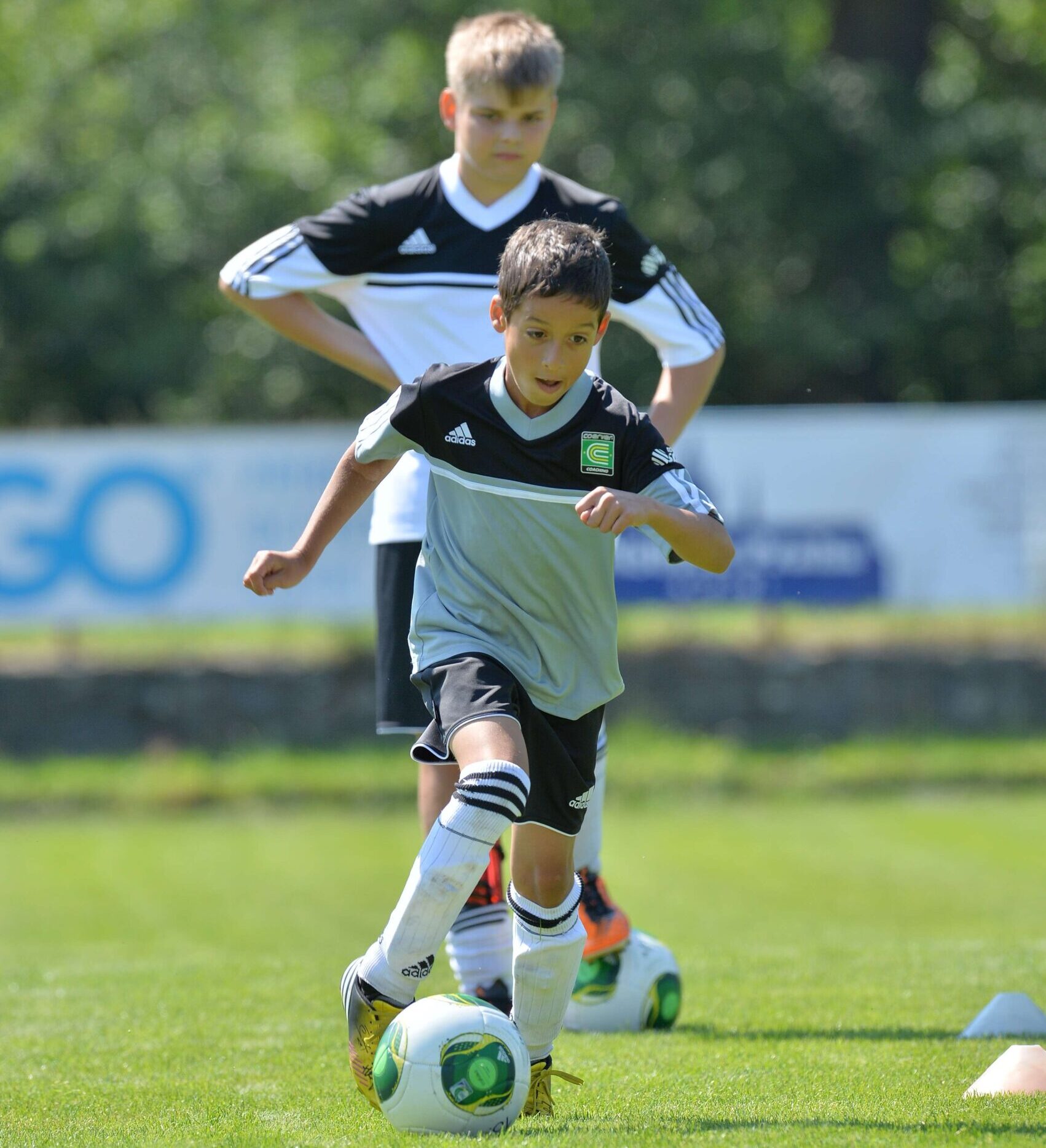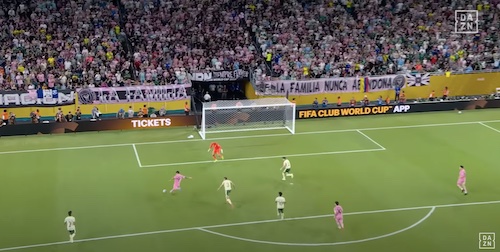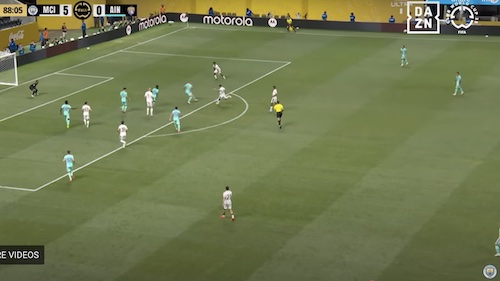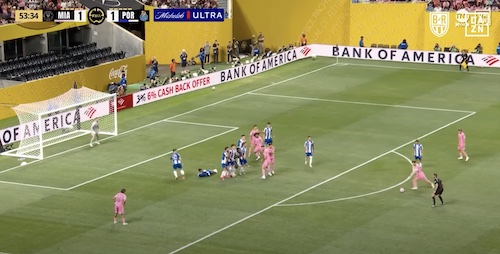| We here in England claim to have invented ‘Association Football’ about 150 years ago. We also invented a whole set of words, terms, expressions, sayings, to describe 22 men kicking a round football (soccer) ball around a rectangular bit of grass. Football or if you have to call it soccer, is now the global game, but these English footballisms are often lost in translation. I can see why…
It’s common to not quite understand what an English football commentator is saying or what they mean when using certain football phrases to describe the action on the field. Here we try to clear a few of those English footballisms up…. Slang | Clichés | Nonsense | Everyday | Nouns | Tabloidese | New It’s just easier to describe it like this: Footy – The game of Associated Football, or soccer Derby – This is a football game between two rivals located in the same town or city; the image above is from the Manchester derby game between Manchester City and Manchester United Gaffer / Guvnor – Rugged name for the manager of a football club, most often used by their players – Harry Redknapp is one Route one – To try to get the ball towards the opposing goal as quickly as possible, aim straight for the centre forward without passing it around – Wimbledon FC were famous for it Back to square one – When you go back to the start, often passing it to defenders or the goalkeeper, when trying to attack the opposing team’s goal – originated with BBC football commentaries where the pitch was divided into a number of squares so the commentator could describe where the ball was Nutmeg – Putting the ball through an opponent’s legs (and collecting it again) Give and go – The ball being passed back to the player who just gave it to you – also known as a one-two Byline – The line that marks each end of the pitch, either side of the goal. Wingers often try to get to the byline to deliver crosses Handbags / When it kicks off – Scuffling between players Throw teacups – A manager who may send the crockery flying in anger at half-time, in order to motivate his side to perform better in the second half The hole – The gap between the opposing team’s defence and midfield – creative players usually try to exploit this space to create and score goals The water-carrier – Normally a central midfielder, who works hard for the team, while letting the more creative players indulge in attack Early doors – At the beginning of the game Hospital pass – Putting a teammate in trouble by playing a poor pass when he’s under pressure Onion bag – The net, the goal Geoff Hurst – Cockney rhyming slang for a First (at university) – no reason other than because getting a hat-trick to win England the 1966 World Cup is something that means you’re dropped into conversation as often as possible For commentators, pundits, managers and, most of all, players fulfilling endless interview obligations, these are just too hard to resist: At the end of the day – Doesn’t really mean anything, a delaying tactic in interviews When all’s said and done – Again, means little – when the game, or season, is finished A game of two halves – When the momentum of a game shifts during the half-time break, one team is better before half-time, another better afterwards Week in, week out – Doing the same every game, for example scoring goals One game at a time – Players say it when asked if they’re thinking about, for example, looking to the win the league, so as to suggest they won’t lose concentration for the next game The magic of the Cup – Used to refer to unexpected results happening in our very favourite of competitions, the FA Cup, especially when a lower league team beats one of the top sides Eleven against eleven out there – Used, often in the cup, to suggest that although one team is supposed to have more valuable, better, players, both teams are made up of just a bunch of players Football’s the winner – When it’s been a high quality game, perhaps ending in the draw – also ‘an advert for the game’ Get the rub of the green – Be lucky I didn’t see it – When a manager avoids talking about a controversial incident, normally so he doesn’t have to criticise his own player – patented by Arsene Wenger Sayings that just don’t make sense These paint pictures that just simply aren’t true – we all know what they mean though: Had him in his pocket – When a player does a good job of preventing his opponent playing well – marked him out of the game means the same Wore his heart on his sleeve – A player who showed his emotions, or simply tried really hard Run your socks off – Try very hard for the team, cover a great distance during the game Carrying a knock – Being slightly inured, though still able to play Sick as a parrot – Very disappointed, usually after a defeat, or having suffered from bad luck Give 110% – Try harder than is physically possible Terms that have made their way into everyday language When football becomes a metaphor for life: Playing away from home – Cheating on one’s partner Kick it into touch – Getting rid of something Give it your best shot – Try your hardest Let the side down – When your poor performance hinders your team Moving the goalposts – When the target you thought you were aiming at is (unfairly) changed Get the ball rolling – Begin something Some standout nicknames that are used so often we almost forget what the real names were in the first place: Posh – Peterborough FC, not quite sure why Pompey – Portsmouth FC, many different explanations as to why United – Although a large number of English clubs have ‘United’ in their name, it commonly refers to Manchester UnitedFergie – Sir Alex Ferguson, the longest serving manager in the English game Gooners – Fans of Arsenal, derived from the club’s nickname, The Gunners – the club was formed by munitions manufacture workers at the Royal Arsenal Toon – Newcastle United, their fans being the Toon Army Crazy Gang – the former Wimbledon FC, who were notorious for their mad behaviour in the 1980s The tabloid papers haven’t got a lot of space to work with, three letter words are the order of the day: Rap – Get told off Ace – Simply a player Peg – Foot, a ‘great left peg’ refers to a player who strikes the ball well with his left foot Sometimes the only way to describe something is to invent a new word to do it for you: Bouncebackability – Invented by then-Crystal Palace manager Iain Dowie to describe an ability to bounce back from disappointment – it’s caught on… Spitting Image – the 1980s satire show – made this sketch song on football clichés before the 1990 World Cup England’s 1998 World Cup squad sought to liven up their training camp – and poke fun at their own use of clichés – by betting on who could get the most song titles into their interviews: |
English Footballisms
